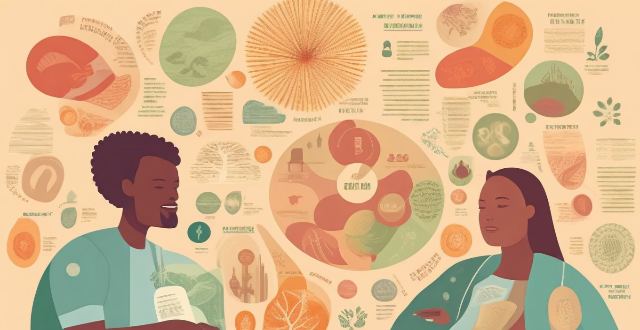This text discusses the role of human activities in the emergence and spread of viruses, highlighting deforestation, urbanization, agricultural practices, and global travel as significant contributors. It suggests actions to mitigate these effects, such as protecting natural habitats and promoting sustainable agriculture, and emphasizes the need for improved public health infrastructure and responsible travel practices.

The Role of Anthropogenic Activity in the Emergence and Spread of Viruses
Introduction
Anthropogenic activities, or human-made changes to the environment, have a significant impact on the emergence and spread of viruses. These activities include deforestation, urbanization, agricultural practices, and global travel. In this article, we will explore how these activities contribute to the spread of viruses and what can be done to mitigate their effects.
Deforestation
Deforestation is the removal of trees from an area, often resulting in the destruction of habitats for animals and plants. This can lead to the emergence of new viruses as animals are forced to live in closer proximity to humans. For example, the expansion of agricultural land into forested areas has been linked to the emergence of Ebola and HIV.
Key Points:
- Deforestation forces animals into closer contact with humans, increasing the likelihood of virus transmission.
- The destruction of habitats can lead to the emergence of new viruses as animals are forced to adapt to new environments.
Urbanization
Urbanization refers to the process of people moving from rural areas to cities. As cities grow, they often expand into surrounding natural habitats, leading to similar issues as deforestation. Additionally, crowded living conditions in cities can facilitate the rapid spread of viruses once they emerge.
Key Points:
- Urbanization can lead to the destruction of natural habitats, increasing the likelihood of virus emergence.
- Crowded living conditions in cities can facilitate the rapid spread of viruses once they emerge.
Agricultural Practices
Agricultural practices such as monoculture farming and the use of pesticides can also contribute to the emergence and spread of viruses. Monoculture farming involves planting large areas with a single crop species, which can create ideal conditions for viruses to spread rapidly. The use of pesticides can also disrupt natural ecosystems, leading to the emergence of new viruses.
Key Points:
- Monoculture farming creates ideal conditions for viruses to spread rapidly.
- The use of pesticides can disrupt natural ecosystems, leading to the emergence of new viruses.
Global Travel
Global travel has made it easier for viruses to spread across the world. As people travel from one country to another, they can carry viruses with them, leading to outbreaks in new regions. This was seen with the rapid global spread of COVID-19 in 2020.
Key Points:
- Global travel allows viruses to spread across the world more easily than ever before.
- Outbreaks in new regions can occur as people carry viruses with them during travel.
Mitigating the Effects of Anthropogenic Activities
To mitigate the effects of anthropogenic activities on the emergence and spread of viruses, several actions can be taken:
1. Protect Natural Habitats: Preserving natural habitats can help maintain biodiversity and reduce the likelihood of virus emergence.
2. Promote Sustainable Agriculture: Encouraging sustainable agricultural practices, such as crop rotation and reduced pesticide use, can help maintain healthy ecosystems and reduce the risk of virus emergence.
3. Improve Public Health Infrastructure: Investing in public health infrastructure, including disease surveillance and response systems, can help detect and control outbreaks more effectively.
4. Promote Responsible Travel: Encouraging responsible travel practices, such as staying home when sick and following quarantine guidelines, can help prevent the spread of viruses during travel.
Conclusion
Anthropogenic activities play a significant role in the emergence and spread of viruses. By understanding these activities and taking steps to mitigate their effects, we can work towards reducing the impact of viruses on human health and society as a whole.